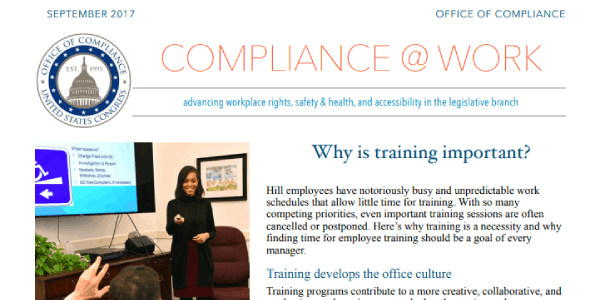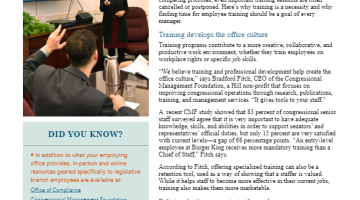Hill employees have notoriously busy and unpredictable work schedules that allow little time for training. With so many competing priorities, even important training sessions are often cancelled or postponed. Here’s why training is a necessity and why finding time for employee training should be a goal of every manager.
Training develops the office culture
Training programs contribute to a more creative, collaborative, and productive work environment, whether they train employees on workplace rights or specific job skills.
“We believe training and professional development help create the office culture,” says Bradford Fitch, CEO of the Congressional Management Foundation, a Hill non-profit that focuses on improving congressional operations through research, publications, training, and management services. “It gives tools to your staff.”
A recent CMF study showed that 83 percent of congressional senior staff surveyed agree that it is very important to have adequate knowledge, skills, and abilities in order to support senators’ and representatives’ official duties, but only 15 percent are very satisfied with current levels—a gap of 68 percentage points. “An entry-level employee at Burger King receives more mandatory training than a Chief of Staff,” Fitch says.
According to Fitch, offering specialized training can also be a retention tool, used as a way of showing that a staffer is valued. While it helps staff to become more effective in their current jobs, training also makes them more marketable.
Policies don’t communicate themselves
Training on workplace rights is also important for a high functioning office. Many staffers have no idea what rights and policies regulate the congressional workplace. That lack of knowledge can be counterproductive and a drain on resources and time. Research in both the public and private sectors indicates that a comprehensive anti-discrimination/harassment training program is the single most effective way to change both behavior and attitudes of employees within an organization.

